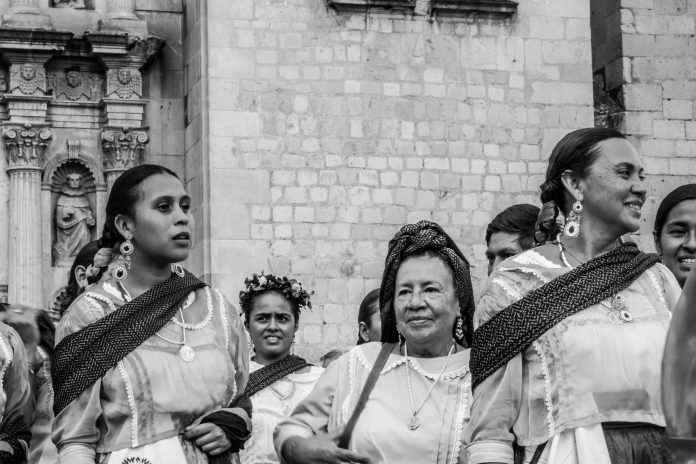In this article, Kristin Dilani Nadarajah documents the Mexican human rights movement happening to stop the torture and indefinite detention of Indigenous prisoners
Mexico’s indigenous population is over-represented in its prison-system, many of whom have undeniable evidence of their innocence. There are also countless examples of prisoners locked up for many years before their case is even tried in court (i.e. no sentence).
We visited a south-Mexican prison-facility in Chiapas, with an anti-prison collective, No estamos todos (We are not all).
The day before our visit we found out that one of the indigenous prisoners organising this movement, Alfredo Gomez Lopez, had been released only a few hours ago.
His story begins almost 11 years ago, a story that he eagerly shares with us. He was visiting the local marked in San Cristobal de las Casas when he was ambushed and abducted into a car.
Alfredo is barely 19 years old at this moment. He is taken to a place where he is hit and tortured. A group of unknown men force him to sign some documents, whilst Alfredo is on the verge of unconsciousness, in a language he does not yet know (Spanish). Later he finds out that this document is the fabricated confession to the homicide he is accused of.
Because of this single falsely signed document, he is charged and sent to prison for an unknown duration. He is now awaiting trial. To provide the appearance of carrying out his legal rights, the Mexican government accepts that Alfredo has a right to a public defender; and a translator if needed.
He was given a translator of the wrong (indigenous) language.
Alfredo is a Tzotzil indigenous, belonging to a mayan culture. During his time in prison he is faced with countless other violations of his rights, such as unhygenic conditions, without access to sufficient medical attention and regular experiences of abuse. Despite this ongoing treatment, he finds the courage to organise himself in prison, which involves a range of additional risks to his situation.
However, this is what he believes to be the cause of his early release, because he was originally set to be in prison until year 2033, i.e. 25 years in prison.
Nonetheless, he is sitting with us on a breezy february night with a huge smile on his face, only 10 years and 8 months after his “obduction”.
Inside prison we meet with some of the prisoners who have been brave enough to organise themselves into a human rights movement. They greet us as if we were old friends and family of theirs, expressing endless gratitude for our visits. Amongst many others, we meet with Juan de la Cruz Ruiz and Adrian Gomez Jimenez, whom have spent 12 and 14 years in prison, respectively.
They both share stories about torture, which includes plastic bags put over their head, chili forced up their nose and electric shocks placed on their genital areas. Juan tells us how he eventually passed out from the pain. These torture mechanisms was used to forge false confessions, which they signed in a desperate attempt to end their torment. This was done at a time when they barely knew any spanish, in addition to limited schooling.
plastic bags put over their head, chili forced up their nose and electric shocks placed on their genital areas.
Thus, the prisoners had little idea how to defend themselves from what was being done.
Speaking to us, Alfredo commented:
“The majority of those found inside prisons are indigenous, those who don’t know how to defend themselves, unaware of their right”.
What is described here, is a system in which the most marginalised and vulnerable are abused and denied their human rights. Inside the prison, the imprisoned indigenous people have to deal with, amongst other things, water that makes them sick, lack of medical supplies and the absence of authorised/qualified doctors.
The Mexican legal-system has consistantly treated those accused of crime as guilty until proven innocent.
However, in 2008 a Criminal Law Reform was passed, following a more North-American legal-system; where the accused is considered innocent until proven guilty. This reform was at finally legally implemented in 2016, though not truly in practice. Only those indigenous individuals accused after this date are able to benefit from this legal reform.
This means that our contacts and friends still behind prison walls will continue to be considered guilty, making a conviction the most probable outcome, despite the overwhelming lack of evidence.
These conditions is only a part of a larger story of structural violence in the region, a narrative in which the indigenous people always end up at the bottom of the food-chain.
The state of Chiapas has a large population of various Mayan indigenous people, where some of them have formed resistance groups as a result of 500 years of violence against them, such as the Zapatista movement that revolted against the Mexican state in 1994; claiming its autonomy. This has lead to several counter-insurgent strategies from the government’s side to hinder further rebellion in the region.
The 15th of March the prisoners will organise a hunger-strike, demanding clean and water, sufficient medical supplies and access to qualified doctors.
On the outside, Alfredo will continue sharing his story and fighting for those still locked up.
References
- https://www.wsj.com/articles/SB10001424052748704322004574475492261338318
- This collective argues that in the corrupt system we are living in there are no true prisoners, or anyone that deserves to be incarcerated. They believe that the prison system is built upon capitalistic ideas of suppression, used to control the poor from rebellion and unrest. No Estamos Todxs have worked with those getting organised on the inside for several years, usually paying them weekly visits.
- Mexican Law review: http://revistas.unam.mx/index.php/mlr/article/view/24979/23419
- http://www.internationalaffairs.org.au/news-item/the-zapatista-movement-the-fight-for-indigenous-rights-in-mexico/




![Europe’s housing crisis: A fundamental social right under pressure Run-down appartment building in southeast Europe set before a moody evening sky. High dynamic range photo. Please see my related collections... [url=search/lightbox/7431206][img]http://i161.photobucket.com/albums/t218/dave9296/Lightbox_Vetta.jpg[/img][/url]](https://www.openaccessgovernment.org/wp-content/uploads/2025/04/iStock-108309610-218x150.jpg)






